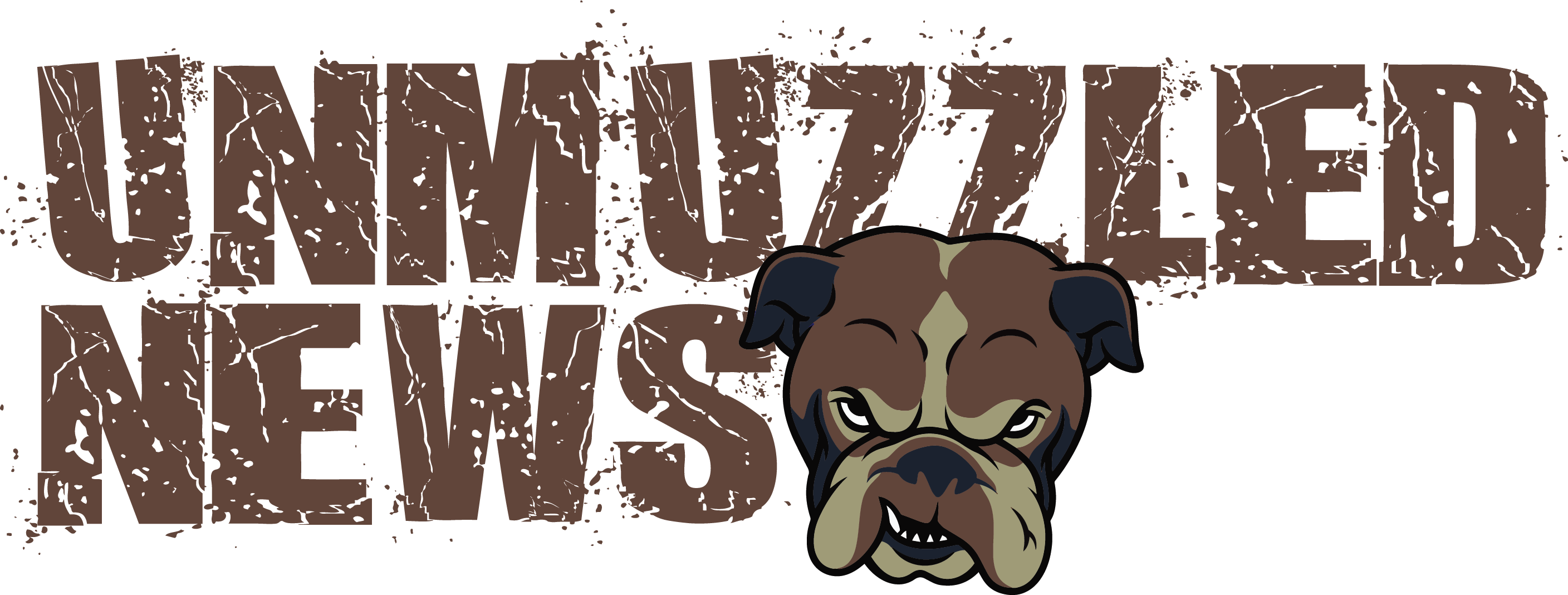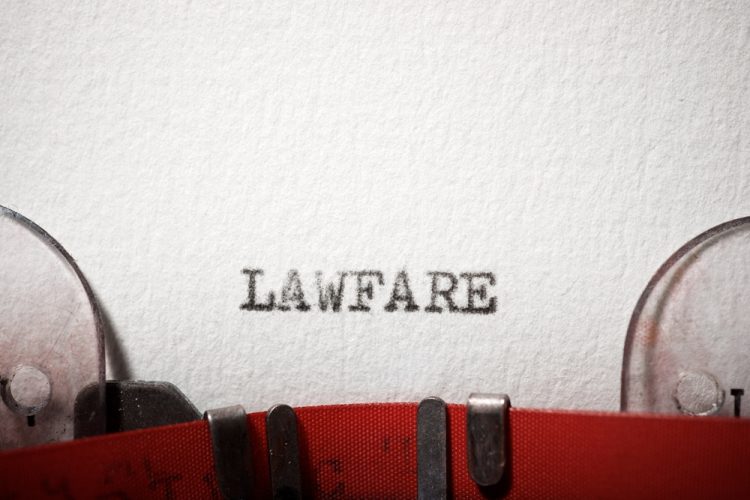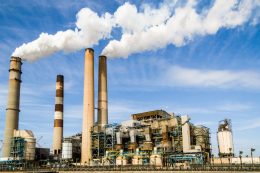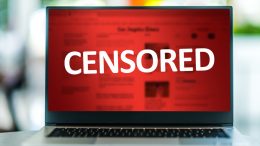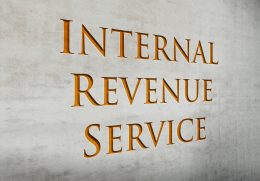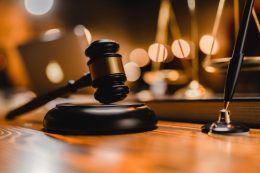Jack Smith spent years building cases against Donald Trump.
Now his credibility is crumbling before America’s eyes.
And Jack Smith told one big lie that forced CNN to call him out.
Smith denies 2024 election influenced prosecution timing
Former special counsel Jack Smith sat down with Andrew Weissmann – a fellow anti-Trump prosecutor who served as Robert Mueller’s deputy – for a cozy interview at University College London.¹
Smith used the friendly platform to make a stunning claim about his Trump prosecutions.
He called it "absolutely ludicrous" to suggest the 2024 presidential election influenced his decisions on when to indict and try Trump.²
"The idea that politics would play a role in big cases like this, it’s absolutely ludicrous and it’s totally contrary to my experience as a prosecutor," Smith insisted during the October 8 interview that was made public this week.³
Smith maintained throughout that his "motives were pure" and denied that the election influenced his decision-making.⁴
The problem? The documented record of Smith’s own actions tells a completely different story.
CNN analyst destroys Smith’s denial with damning timeline
CNN senior legal analyst Elie Honig – a former federal prosecutor himself – wasn’t buying what Smith was selling.
Honig took Smith apart on CNN News Central, systematically dismantling the special counsel’s claims about election timing.⁵
"Jack Smith is not a partisan, per se. He’s not going into this with a D or an R behind him," Honig acknowledged. "But he is, to use Abbe’s phrase, a heat seeking missile."⁶
Then Honig laid out the evidence that contradicts everything Smith just claimed.
"And that caused him, I argue in the book, to overextend and bend ordinary rules and procedures in order to rush the case and get Donald Trump tried artificially quickly so he could get him tried before the 2024 election," Honig explained. "The record of that case makes it entirely clear. Now I’ll leave it up to people to decide whether rushing to get someone tried intentionally before an election is political or not. Jack Smith says his motives were pure, I don’t think the record quite supports that."⁷
Honig didn’t stop there. He called out Smith’s denial as flatly contradicted by Smith’s own documented conduct.
"It’s undeniable that he was thinking about and acting with the 2024 election in mind in asking the judge to change ordinary rules and procedures and I think it’s wrong for him to deny that and claim ‘I had no awareness of the 2024 election.’ I think the record belies that," Honig stated.⁸
Coming from CNN – a network that rarely criticizes Trump’s adversaries – Honig’s assessment carries particular weight.
The timeline exposes Smith’s coordinated election strategy
The facts speak for themselves, and they contradict Smith’s claims at every turn.
Attorney General Merrick Garland appointed Smith as special counsel on November 18, 2022 – exactly three days after Trump announced his 2024 presidential campaign.⁹
Smith moved with unprecedented speed. He indicted Trump on classified documents charges on June 9, 2023, just over six months after his appointment.¹⁰
In August 2023, Smith handed down his election interference indictment with four felony counts.¹¹
Then came the most damning evidence of Smith’s election-focused timeline.
Smith requested a trial start date of January 2, 2024 – strategically positioned just before the Iowa Caucus was scheduled to begin on January 15.¹²
Trump’s legal team requested a trial date of April 2026, giving both sides adequate time to prepare for a complex case involving millions of pages of evidence.¹³
Judge Tanya Chutkan – an Obama appointee – split the difference by scheduling the trial for March 4, 2024, the day before Super Tuesday when multiple states would hold their primaries.¹⁴
As Honig noted, Smith’s January request was "an absurd request given that the defense team must review over 13 million pages of documentary evidence and thousands of hours of video footage."¹⁵
Most federal conspiracy cases give defendants years to prepare. Smith wanted five months.
The election timing became even more obvious when Smith tried to bypass normal appellate procedures and asked the Supreme Court to fast-track Trump’s immunity appeal.¹⁶
The justices rejected Smith’s unprecedented request, with legal experts noting the only reason for such urgency was getting Trump tried before the election.
Then in October 2024 – just weeks before the presidential election – Smith released a 165-page brief against Trump that Judge Chutkan made public.¹⁷
The timing violated longstanding Justice Department policy against taking actions that could influence elections within 60 days of voting.
Smith’s actions violated Justice Department’s own rules
The Justice Department Manual – the official policy guide that governs all federal prosecutors – contains explicit guidance titled "Actions That May Have An Impact on the Election."
The rule states clearly: "Federal prosecutors may never select the timing of any action, including investigative steps, criminal charges, or statements, for the purpose of affecting any election."¹⁸
Honig and other legal experts have repeatedly pointed out that Smith’s conduct appears to violate this core DOJ principle.
Smith asked judges to "change ordinary rules and procedures" specifically to accommodate an accelerated timeline that would put Trump on trial during the heart of the presidential primary campaign.
As Honig wrote in an October 2024 analysis, Smith "bent any rule, switch up on any practice – so long as he gets to chip away at Trump’s electoral prospects."¹⁹
Even Judge Chutkan acknowledged Smith’s request to file first was "procedurally irregular" before ruling in his favor anyway.²⁰
Former Attorney General Sally Yates previously stated that if an action were 60 or 90 days before an election "and you think it has a significant chance of impacting an election, unless there’s a reason you need to take that action now, you don’t do it."²¹
Smith took multiple such actions – and now claims the election never crossed his mind.
The political timing couldn’t have been more obvious
Smith’s October 2024 filing came at a strategically devastating moment for Trump’s campaign.
The 165-page document contained "damning new details" about Trump’s conduct on January 6, delivered to voters just weeks before they headed to the polls.²²
Smith asked for – and received – permission to file a brief four times the normal maximum length, then flipped standard criminal procedure by filing before any defense motion was pending.
The filing dominated news coverage in the final stretch of the campaign, exactly when voters were making their final decisions.
Political journalist Mark Halperin said bluntly after Smith’s London interview: "That’s a lie. He tried to move the case before the election. And he didn’t do that in the normal course of business. He did it for politics."²³
The Office of Special Counsel has now opened an investigation into whether Smith violated the Hatch Act – the federal law prohibiting political activity by government employees.²⁴
U.S. Senator Tom Cotton (R-AR) filed the referral, arguing that "many of Smith’s legal actions seem to have no rationale except for an attempt to affect the 2024 election results."²⁵
The House Judiciary Committee has called on Smith to testify before Congress about his handling of the Trump prosecutions.²⁶
Smith’s coordinated strategy collapsed when Trump won the election, forcing Smith to dismiss both cases to comply with DOJ policy against prosecuting sitting presidents.
The special counsel resigned days before Trump’s inauguration on January 20, 2025.
Smith’s credibility problems extend beyond timeline denials
Smith’s interview with Weissmann revealed more than just his willingness to deny obvious truths about election timing.
Smith also claimed he had "tons of evidence" against Trump in the classified documents case, yet Judge Aileen Cannon dismissed that case in July 2024, ruling Smith’s appointment as special counsel violated the Constitution’s Appointments Clause.²⁷
Smith appealed Cannon’s ruling but withdrew the appeal after Trump won the election.
The special counsel also attacked the current Trump Justice Department, claiming "nothing like what we see now has ever gone on" regarding alleged politicization.²⁸
Smith pointed to the indictment of former FBI Director James Comey and the decision to drop charges against New York City Mayor Eric Adams as examples of political interference.
The irony of Smith – whose entire prosecution timeline revolved around the 2024 election – accusing others of politicizing justice wasn’t lost on legal observers.
Smith’s final report claimed Trump would have been convicted "but for Mr. Trump’s election and imminent return to the Presidency."²⁹
That assessment ignored how the Supreme Court’s immunity ruling gutted major portions of Smith’s case and would have created substantial hurdles at trial.
For Smith to now claim the election never factored into his decision-making insults the intelligence of anyone who followed his prosecutions.
Even prosecutors who oppose Trump recognize Smith’s denials don’t match the documented record of his own actions.
The timeline speaks for itself – and it tells a story Smith clearly doesn’t want America to hear.
¹ Takeaways from former special counsel Jack Smith’s scathing review of the Trump Justice Department, CNN, October 14, 2025.
² Jack Smith Defends Trump Investigation As He’s Called On To Testify, Newsweek, October 15, 2025.
³ Ibid.
⁴ CNN’s Elie Honig Criticizes Jack Smith For Denying 2024 Election Influenced His Decision To Prosecute Trump, The Daily Caller, October 15, 2025.
⁵ Ibid.
⁶ Ibid.
⁷ Ibid.
⁸ Ibid.
⁹ Smith special counsel investigation, Wikipedia, accessed October 15, 2025.
¹⁰ Ibid.
¹¹ Ibid.
¹² CNN’s Elie Honig Criticizes Jack Smith For Denying 2024 Election Influenced His Decision To Prosecute Trump, The Daily Caller, October 15, 2025.
¹³ Ibid.
¹⁴ Ibid.
¹⁵ The Consequences of Jack Smith’s Rush to Trial, Lawfare, February 14, 2024.
¹⁶ Federal prosecution of Donald Trump (election obstruction case), Wikipedia, accessed October 15, 2025.
¹⁷ CNN’s Elie Honig Criticizes Jack Smith For Denying 2024 Election Influenced His Decision To Prosecute Trump, The Daily Caller, October 15, 2025.
¹⁸ Note from Elie: Jack Smith’s October Cheap Shot, Cafe, October 3, 2024.
¹⁹ Ibid.
²⁰ Ibid.
²¹ CNN’s Top Legal Analyst to Jack Smith: You Violated the Cardinal Rule of a Federal Prosecutor, Townhall, October 5, 2024.
²² Note from Elie: Jack Smith’s October Cheap Shot, Cafe, October 3, 2024.
²³ Jack Smith Appears in England With an Enemy of Trump — Andrew Weissmann — and Denounces Allegations of a Politicized Prosecution as ‘Ludicrous’, The New York Sun, October 15, 2025.
²⁴ Jack Smith Defends Trump Investigation As He’s Called On To Testify, Newsweek, October 15, 2025.
²⁵ CNN’s Elie Honig Says Office Of Special Counsel’s Investigation Is Not A ‘Welcome Development’ For Jack Smith, IJR, August 4, 2025.
²⁶ CNN’s Elie Honig Criticizes Jack Smith For Denying 2024 Election Influenced His Decision To Prosecute Trump, The Daily Caller, October 15, 2025.
²⁷ Jack Smith criticizes Supreme Court immunity decision, Washington Examiner, October 15, 2025.
²⁸ Takeaways from former special counsel Jack Smith’s scathing review of the Trump Justice Department, CNN, October 14, 2025.
²⁹ Timeline: Special counsel’s probe into Trump’s efforts to overturn 2020 election, ABC News, August 26, 2025.
